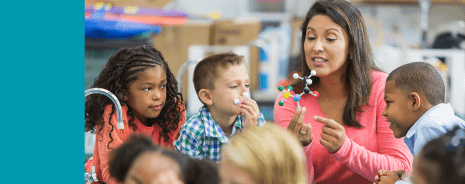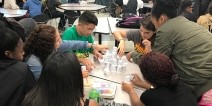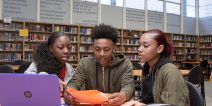
Deeper Learning
Breadcrumb
Deeper learning develops students’ abilities to think critically and solve complex problems, communicate effectively, work collaboratively, and learn independently. The teaching approaches that support deeper learning enable students to succeed and thrive in an ever-evolving and interconnected society. Curriculum, instruction, and assessment focused on deeper learning engage students in learning core academic content and applying that knowledge to relevant and authentic real-world problems. Research shows that schools focused on deeper learning demonstrate stronger student achievement, with gains in outcomes especially pronounced for students from low-income families, new immigrants, and students of color who have been historically underserved in U.S. schools.
Featured Resources
Further Reading
-
Deeper Learning in Schools and School Networks
-
Deeper Learning Networks: Taking Student-Centered Learning and Equity to Scale (
report and related materials
) -
New Tech Network: Driving Systems Change and Equity Through Project-Based Learning (
report and related materials
) -
Internationals Network for Public Schools: A Deeper Learning Approach to Supporting English Learners (
report and related materials
) -
Big Picture Learning: Spreading Relationships, Relevance, and Rigor One Student at a Time (
report and related materials
) -
Teaching the Way Students Learn Best: Lessons from Bronxdale High School (
report and brief
) -
Closing the Opportunity Gap: How Positive Outlier Districts in California Are Pursuing Equitable Access to Deeper Learning (
report and related materials
)
-
-
Supporting Educators and Leaders to Enact Deeper Learning
-
Preparing Teachers for Deeper Learning (
book and briefs
) -
Preparing Leaders for Deeper Learning (
book and brief
)
-
Deeper Learning Principles and Practices
-
Redesigning High Schools: 10 Features for Success (
interactive report
) -
Design Principles for Schools (
interactive report
) -
The Civil Rights Road to Deeper Learning (
brief and webinar
) -
Using Performance Assessments to Support Student Learning: How District Initiatives Can Make a Difference (
report and related materials
) -
Project-Based Learning (
video series
)









